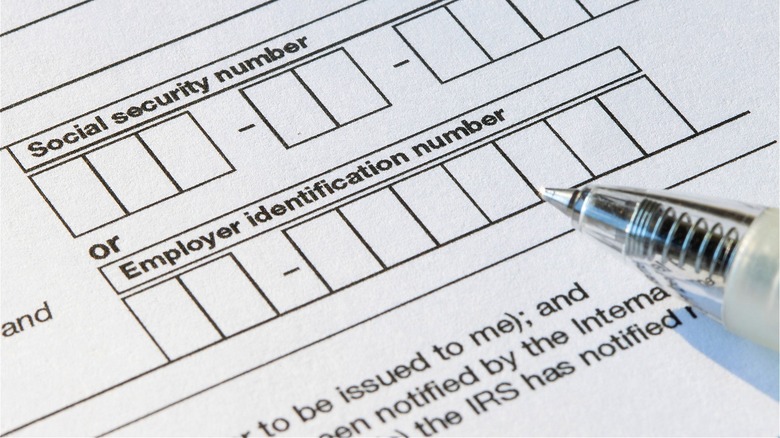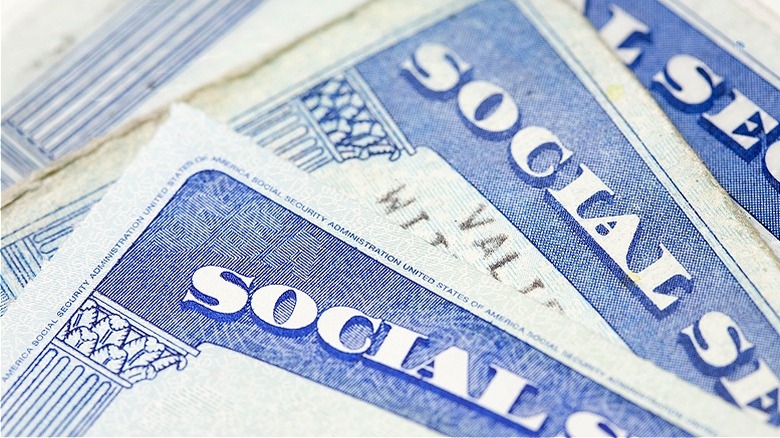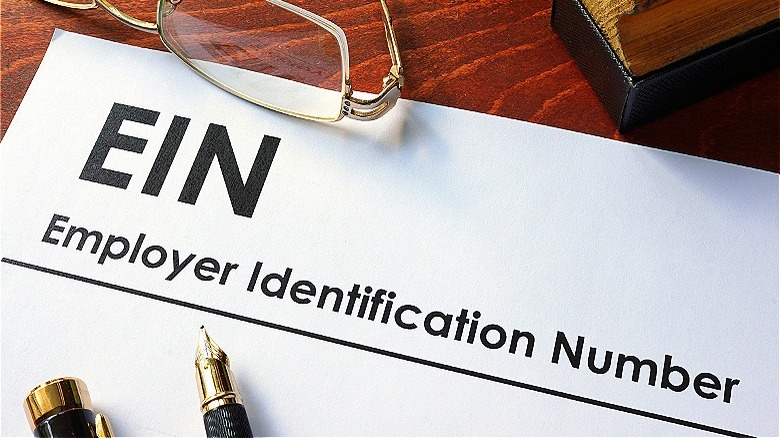What Exactly Is A Tax ID Number?
There are a lot of things on your taxes that can be confusing. From terms to tables to schedules, it's no wonder that Americans dread tax season. In fact, according to a 2023 Gallup poll, the most hated taxes are federal income taxes (they beat out the previous year's winner, local property taxes). You might even belong to the 60% of U.S. adults who believe their income tax amount is too high. While it might not be your favorite, though, it can be incredibly beneficial to know and understand some of the terms and factors that can and do affect your taxes. Learning what a tax ID number is can be a great place to start.
If you've ever manually inputted your tax information, you have probably seen sections asking for different kinds of tax ID numbers. You might've even asked yourself what, exactly, they were, and/or why they were important. The short answer to that is that a taxpayer identification number, or TIN, is actually an umbrella of several different kinds of tax-specific IDs. These range from specific tax IDs that apply to you personally to tax IDs for entities and tax-involved parties. Knowing which specific ID types you might need in order to successfully file your taxes is extremely important, especially if you're a nonresident or resident alien without a Social Security number (more on that later). Let's dive into the tax IDs you need to know before tax season.
Personal tax ID numbers
There are several possible personal TINs you should know about, depending on different scenarios, including your status as a U.S. citizen, a resident/nonresident, or an alien; whether you have adopted a child during the tax year; and even if you prepare taxes for others. You must include your personal TIN on all tax returns, statements, and tax-related documents. Taxpayer identification numbers are also required for any withholding and exemptions, including certain annuities and tax treaty benefits. If you are a U.S. citizen (or a lawful alien), your personal TIN will actually be your Social Security number (SSN).
For other taxpayers, an Individual Taxpayer Identification Number (ITIN), is the tax processing number assigned to resident and nonresident aliens and their families who are unable to get a Social Security number. Another potential TIN you might need to know about is the Adoption Taxpayer Identification Number (ATIN). This TIN is for parents who might be in the process of adopting a child and are unable to get an SSN for the adoptee before the deadline to file taxes
Another TIN you might've already seen, especially if you get your taxes prepared by a service or individual is the Preparer Tax Identification Number (PTIN). As of 2011, all tax preparers must use and include their IRS-assigned PTIN on all tax returns that they prepare. The PTIN is required for anyone who prepares most or all of any federal tax return or claims in exchange for compensation.
Other tax ID numbers
The most important tax ID number you will need to know when filing taxes (that isn't your own) is your Employer Identification Number (EIN). This federal tax identification number allows the IRS to properly identify a specific business (aka your employer) in much the same way your Social Security number allows the revenue service to identify you. However, unlike an SSN, EINs aren't considered sensitive information, so they can be openly distributed and displayed by a business. Something to keep in mind is that estates and trusts that draw an income must also have their own EIN assigned.
EINs are only required of businesses that operate in the United States or within a U.S. territory so those with international work will have to file entirely different forms when filing applicable taxes. With that in mind, an EIN is required in order for a business to operate in the U.S. This form of TIN allows a business to do everything from hiring and paying employees to opening bank accounts to filing taxes, so making sure your business (or employer) has an EIN can be extremely important.
Also, if you're a self-employed individual or a sole proprietor, you might be required to have your own EIN, depending on the specifics of your business. However, if you don't have employees and you started your own business as opposed to having bought an existing one, you'll more than likely not need an EIN. Many self-employed individuals and sole proprietors use their SSN instead of an EIN.


